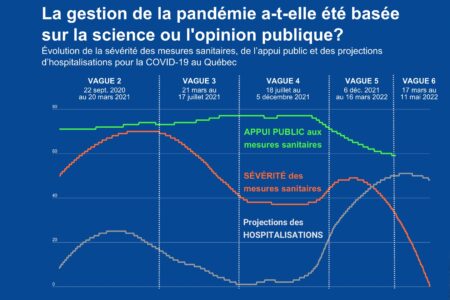
COVID-19 is causing governments everywhere to spend. Everyone agrees this needs to happen while temporarily avoiding the question of “How do we pay for today?” With provinces and territories beginning to reopen, the time has come for political leaders to begin contemplating that question.
How we pay for today’s health crisis will reveal much about who we are as a country and where we are going. With 84 percent of federal revenue derived from different forms of taxation, this question is inextricably linked to Canada’s tax system. Canadian households and businesses will be paying for the COVID-19 pandemic for decades to come. How they pay is a question worth considering now. In this regard, there is no better time to rethink Canada’s tax system.
Paying for today will be challenging. New federal measures announced during this health emergency are running over $230 billion, according to RBC Economics, while provincial measures are running over $50 billion. Canadian municipalities themselves are facing losses of more than $10 billion as they continue to deliver essential services with reduced capability to recover revenues, the Federation of Canadian Municipalities has noted.
Lower GDP along with funding for emergency measures are sending government deficits skyrocketing in 2020. The federal deficit is projected to rise by nearly a factor of 10 to $252 billion, the Parliamentary Budget Officer says. Provincial deficits are anticipated to surge six-fold to $63 billion, according to RBC Economics. Because Canadian municipalities are legally not permitted to run deficits, they are actively seeking assistance. In turn, rising deficits and lower GDP will increase government debt-to-GDP ratios in 2020-21 to 48.4 percent federally and 59 percent provincially.
This is merely where things stand now. If emergency measures continue to extend beyond prescribed timeframes, or if the economy rebounds more slowly than anticipated, public sector debt will continue to rise. Some do not see this as a problem because the remedy, collecting revenue and cutting costs, can be exacted over a long timeframe. This is technically true, but overlooks the immediate potential problem of Canadian governments trying to “course correct” too quickly, harshly and disjointedly.
Tax increases to offset public spending during COVID-19 are unavoidable, the Parliamentary Budget Officer says. In this regard, Canadian governments must be mindful of each other’s repayment strategies, just as they have been encouraged to coordinate on reopening. To do otherwise, with hefty and disjointed tax hikes at every level, could further erode the financial health of Canadian households and businesses. Our political leaders must remember there’s only one tax base: households and businesses. Canadian households have one of the higher debt-to-income ratios in the world, and businesses have seen the demand for their goods and services decline by up to 80 percent amid social distancing. It is therefore reasonable to ask our political leaders to take the time to jointly consider how they are going to pay for this health crisis in a fair way, with a mind to global economic competitiveness.
Political leaders have seen recently how sweeping policy change can be delivered in a positive way with little delay.
This much-needed discussion should ultimately involve a rethink of Canada’s tax system. Political leaders have seen recently how sweeping policy change can be delivered in a positive way with little delay. In a post-pandemic world, big policy change is not only possible, but warranted in a variety of areas.
Canada’s tax system is overdue for review. Much in the world has changed since 1966, when the Carter Commission published its six-volume assessment of Canada’s tax system. That was the last time the system was comprehensively and independently reviewed. Canada’s tax review deferral makes it an outlier among the world’s most developed economies. Countries such as Australia, Austria, France, Japan, the Netherlands, New Zealand, Norway, the United Kingdom and the United States have put their tax systems under full-scale review within the last decade. Many groups, in addition to the Canadian Chamber, have urged Canada to rethink its own system. For instance, as recently as 2018, both the Organization for Economic Co-operation and Development (OECD) and the International Monetary Fund (IMF) were encouraging Canada to undertake a careful and independent review of its tax system to ensure it remains efficient, equitable and competitive in a changing global tax environment.
As it stands, Canada’s tax system is overly complicated, outdated in light of economic developments and veering toward uncompetitive.
Retooling the tax system has several advantages for a post-pandemic Canada.
First, it offers the opportunity to shift some of the burden of repaying the public debt accumulated during this health crisis from income taxes (personal and corporate) to other forms of taxation. This has the merit of delivering significant financial relief to households and businesses while better aligning Canada’s tax mix and competitiveness with other OECD countries. Once this health crisis is over, it would be counterproductive for the federal government to continue relying so heavily on the form of taxation – personal and corporate income taxes – shown by the OECD to be the most harmful to economic growth.
Second, it creates the opportunity to bring more of Canadian companies’ international earnings back to Canadian shores. Canadian companies that have been encouraged by the federal government to expand internationally can find it costly to shift their earnings back home, depending on the industry they are in or the country where they are doing business. Conceivably, such companies could be enticed to repatriate more of their international earnings by amending the rules under which they are able to do so. For instance, adjustments introduced during the United States’ 2017 tax overhaul resulted in American firms repatriating $776 billion (USD) in international (taxable) earnings in one year. Amendments could be used to increase the amount of taxable capital in Canada and increase the private capital available for productive and inclusive stimulus investment.
Finally, retooling of our tax system could help mobilize latent and untapped pools of private capital for public good and stimulus. With so much public debt and such a large economic decline, Canadian governments should not solely rely on traditional publicly financed stimulus packages to foster recovery. A parallel privately financed stimulus package should be mobilized for productive and inclusive stimulus as well.
The creation of Canadian Regeneration Funds nationally (the equivalent of US Opportunity Zone Funds) would be one game-changing example of this approach. Adopted in the 2017 United States’ tax overhaul, the Opportunity Zone tax incentive is anticipated to mobilize $100 billion (USD) in private capital gains to create jobs and economic development in more than 8,700 Opportunity Zones, according to the US Treasury Department. In Canada, the Opportunity Zone model has caught the attention of the Ontario government, which in March amended the Ontario Taxation Act to introduce a tax incentive known as the Regional Opportunities Investment Tax Credit.
A healthy debate can and should be had over whether Canada’s tax system needs retooling. With so many questions now circulating about how to get out of, and invariably pay for, this health crisis, political leaders should be encouraged to focus on creating an attractive tax and investment environment to stimulate the growth and capital needed for recovery.
This article is part of the The Coronavirus Pandemic: Canada’s Response special feature.









